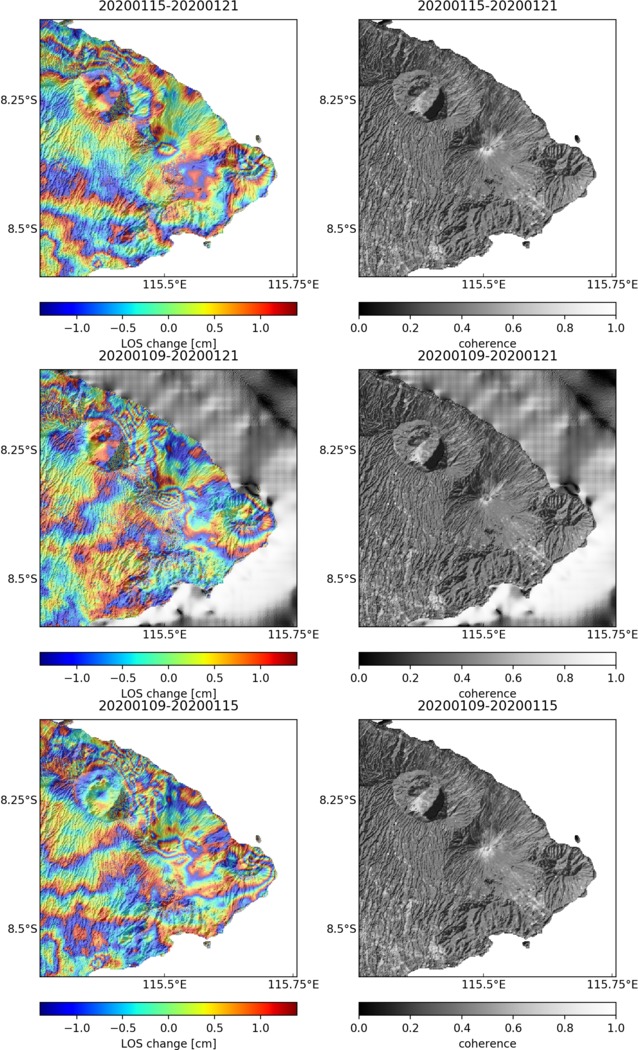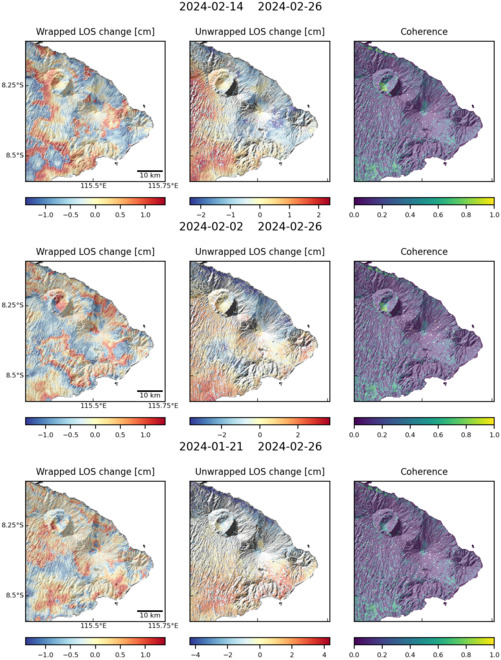Observations of Deformation
| Volcano number: | 264020 |
|---|---|
| Region: | Indonesia |
| Country: | Indonesia |
| Geodetic measurements? | Yes |
| Deformation observation? | Yes |
| Measurement method(s): | InSAR |
| Duration of observation: | 2017 to 2017 |
| Inferred cause(s) of deformation: | Magmatic |
| Characteristics of deformation: | The last major eruption for this volcano was between February 1963 and January 1964. Known to be one of the most significant eruption from Indonesia in the twentieth century. Agung erupts again on 21 November 2017 eruption, after 54 years of dormancy. Albino et al (2019) observed an uplift between Agung and its neighbouring Batur volcano, interpreting it as a dyke shaped intrusion between these volcanoes that was controlled by edifice loading. Prior to the 2017 eruption, several volcano deformation studies using InSAR were conducted at Agung. One of them, Lingun et (2013) produced a time series from ALOS PALSAR images from 2007 to 2009, where vertical deformation. This study correlated the deformation with time and modelled the deformation from two different sources, one is a Mogui point source and a vertical prolate spheroid. They concluded that the volcano inflated at a constant rate with a depth of 5km below the summit. |
| Reference(s): | Albino, F., Biggs, J., & Syahbana, D. K. (2019). Dyke intrusion between neighbouring arc volcanoes responsible for 2017 pre-eruptive seismic swarm at Agung. Nature communications, 10(1), 748. |
| Lingyun, J., Qingliang, W., & Shanlan, Q. (2013). Present-day deformation of Agung volcano, Indonesia, as determined using SBAS-InSAR. Geodesy and Geodynamics, 4(3), 65-70. | |
| Chaussard, E., & Amelung, F. (2012). Precursory inflation of shallow magma reservoirs at west Sunda volcanoes detected by InSAR. Geophysical Research Letters, 39(21). | |
| Location: | -8.342, 115.508 |
| REST API endpoint (JSON): | https://comet.nerc.ac.uk/wp-json/volcanodb/v1/volcano/4276 |
Latest Sentinel-1 Data

Size: 638px x 1050px (219.78 KB)

Size: 501px x 660px (135.94 KB)

Size: 638px x 1050px (240.92 KB)

Size: 501px x 660px (134.73 KB)
